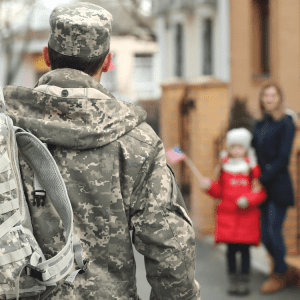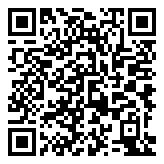CLS: America’s Veterans: After the Conflict
This widget is displayed if cost is set. In order for the widget in this page to be displayed correctly, please set cost for your last event.How to set cost
Learn about the issues American heroes faced after returning from various conflicts over our 248 years of independence.
Kevin Moore
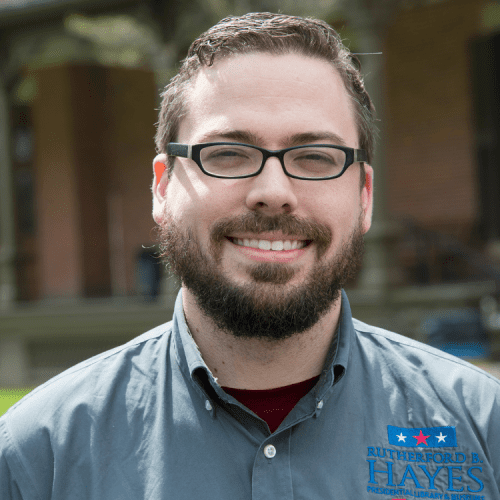
Monday, June 17, 10:30 a.m. | Orchestra Hall
“The Civil War Veteran Experience”
After four years away at war, veterans of the Civil War were tasked with resuming their lives as civilians.
However, for many it was not as simple as picking up where they left off. Some had physical disabilities that affected their ability to work. Others struggled to cope with their war experience and turned to substance abuse.
Many felt the country was beginning to forget their sacrifice, so they formed fraternal orders with other veterans.
Kevin Moore is the Curator of Artifacts at the Rutherford B. Hayes Presidential Library & Museums. He previously taught history, humanities and other social sciences at colleges in Northwest Ohio, including Heidelberg University and Lourdes University.
He holds a master’s degree from Bowling Green State University and has authored several books.
Jacob Smith
Tuesday, June 18, 10:30 a.m. | Orchestra Hall
“Korea Era Veterans”
Veterans Dan Leavell and Stephen Bansek will discuss their time in both in-service and post-service years, specifically how they felt about going into the military during and after service, and their thoughts on how the nation has kept its promise to its veterans of their generation and later generations. Both men are over 85, and it is hoped that they will be able to give the audience a foundation of where veterans have been for most of the 20th century and into the first quarter of the 21st.
“Wednesday, June 19, 10:30 a.m. | Orchestra Hall
“Vietnam Veterans”
Both during and after the Vietnam War, those who served in uniform encountered an immense level of hostility during a time of political and cultural uncertainty for the nation. For over 25 years or even longer, Vietnam veterans were dismissed, and their service was trivialized by their fellow citizens and, in some cases, by older veterans of previous wars.
The purpose of this session is for those participating to learn about how these veterans saw their own service and how they have seen other people’s reactions to their service, both in the immediate aftermath of the war and how it has evolved over the past 50 years.
Perhaps the biggest question of this generation is whether they think they have kept the charge of the Vietnam Veterans of America, whose motto is “Never again will one generation of veterans leave another generation of veterans behind.”
Thursday, June 20, 10:30 a.m. | Orchestra Hall
“Post 9-11 Veterans”
Sept. 11, 2001, changed the world while also changing how veterans today are treated and perceived. This session explores the experiences of these post-9/11 veterans, the newest and smallest incarnation group of veterans.
The issues that will be discussed, among others, will be whether these veterans feel that the government has kept faith with their generation of veterans. What are their hopes for the future of this country regarding people wanting to continue to serve? What issues do they see veterans facing in the future? Finally, what are their thoughts about previous generations of veterans in relation to their treatment compared to these previous generations?
All three lectures will consist of veterans being interviewed by Jacob Smith about their thoughts and experiences during their service. The interviews will be conducted chronologically, starting with veterans who served during the Korean War and going through Vietnam and present-day veterans.
Smith is a combat veteran of the Iraq War. This series aims to give those in attendance a more comprehensive view of the past 70 years of veterans’ experiences both while in service and after their service was complete.
Polly Albrecht
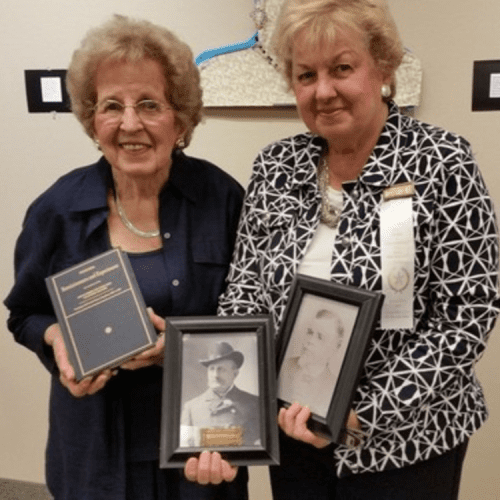
Tuesday, June 18, 3:30 p.m. | Orchestra Hall
“The 103rd Ohio Volunteer Infantry”
The 103rd Ohio Volunteer Infantry (OVI) celebrates the lives and service of Cuyahoga, Lorain and Medina County soldiers serving the 103rd regiment of the OVI during the Civil War.
This lecture will review the history of the Infantry and the attempts to maintain the friendships formed as a result of their service.
Join Polly Albrecht, a member of the Sons and Daughters of the 103rd OVI, for this lecture.
Picture of Olive Gruber (left) and Daughter Polly Albrecht (right) are direct descendants of the 103rd OVI veterans. Picture courtesy of cleveland.com.
Evan Sullivan
Wednesday, June 19, 3:30 p.m. | Orchestra Hall
“Constructing Disability after the Great War: Blind Veterans & World War I America”
World War I was cataclysmic in scale. Though the U.S. joined the war in 1917, three years after the conflict started, American soldiers experienced all the intensities of modern industrial war, including trench warfare, disease, the magnitude of continuous artillery bombardment, and the perils that came with widespread use of chemical weapons.
American soldiers wounded in World War I returned to the U.S. and encountered a policy landscape that differed significantly from how veterans of previous wars experienced their post-war lives.
Drawing on information from his forthcoming book, Constructing Disability after the Great War, Sullivan will explore the major social, cultural and policy changes that affected disabled World War I vets by examining the lives of veterans who were blind as a result of their military service.
Dr. Evan P. Sullivan is Assistant Professor of History at SUNY Adirondack in Upstate New York. He is a historian of disability, gender, and war in the modern era. Constructing Disability after the Great War: Blind Veterans in the Progressive Era will be published by the University of Illinois Press in October.
Ralph Lindeman
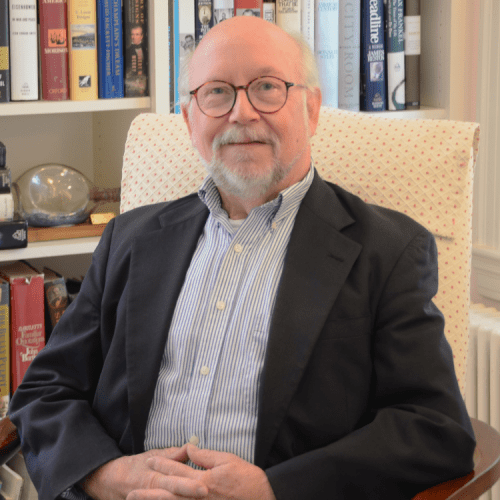
Thursday, June 20, 3:30 p.m. | Orchestra Hall
“The Rebel Raids on the Great Lakes”
Confederate leaders during the last year of the Civil War initiated a daring strategy to bring the war to the North by launching raids from Canada across the Great Lakes, into Ohio and other northern states.
In this lecture by Ralph Lindeman, there will be a discussion of the many colorful characters that made up the Confederate raiding force, along with the Union officials who opposed them.
One of the most daring raids targeted the Civil War prison camp on Johnson’s Island where over 2,000 Confederate officers were held.
This presentation will explain how the prison came to be located on Johnson’s Island, describe the life of the prisoners held there and discuss the ripple effects the raid had on relations between the U. S. and Great Britain.
Lindeman is a retired lawyer and journalist. After beginning his legal career at the Toledo Legal Aid Society, he went to Washington, D.C., and worked as a consumer protection attorney at the Federal Trade Commission and later as a trial attorney at the U.S. Justice Department, handling environmental enforcement cases.
After being offered early retirement from the government in 2001, Lindeman switched careers and began work as a reporter for Bloomberg News, where his beats included covering Congress and the White House. Lindeman retired for good in 2014 and began work on his book, Confederates from Canada: John Yates Beall and the Rebel Raids on the Great Lakes.
Lindeman’s family has had connections with Lakeside for over 100 years. His father visited as a child and the family has owned a cottage on Walnut Avenue since 1972.
Kimberly Hazelgrove
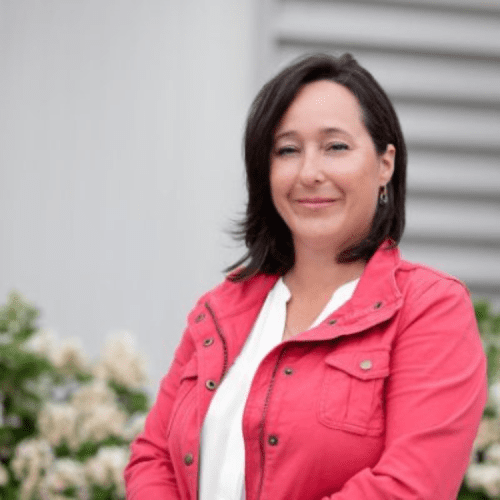
Friday, June 21, 10:30 a.m. | Orchestra Hall
“Gold Star Families & Veterans from the 1980s & 1990s”
This final session will explore the sacrifices made by Gold Star families during the immediate aftermath of the death of a service member and over the course of the years that follow. What are the challenges and impacts on the spouse, children, and the rest of the family?
The second half of this program will look at service before Sept. 11, 2001, and how veterans of that era seem to look back at the time between the Vietnam War and post 9/11 veterans.
Kimberly Hazelgrove is a veteran and Gold Star wife of CW2 Brian D. Hazelgrove. Her career as an intelligence analyst in the U.S. Army came to an end after the death of her husband in Iraq in 2004.
Advocacy became a necessity ignited by the heartbreak of the loss of her husband and the father of her children, the anger created by the inept handling of her husband’s casualty process and the intentional injustices suffered by surviving spouses and children of the fallen, which continue to this day.
